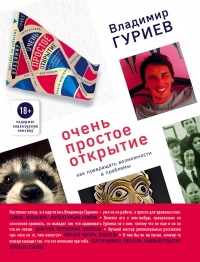First on the list of people I have to thank is Sarah Harlin. After writing an essay I usually showed it to her first. And she usually crossed out half of it and told me to rewrite the rest. She has a perfect ear for prose rhythm, and barks at superfluous words like a dog after a squirrel.
If these essays are any good it's because most grew out of conversations with her or with Robert Morris, Trevor Blackwell, or Jackie McDonough. I'm lucky to know them.
The book benefits from the ideas of several other friends with whom I've talked about these questions over the past several years: Ken Anderson, Chip Coldwell, Matthias Felleisen, Dan Friedman, Daniel Giffin, Shiro Kawai, Lisa Randall, Eric Raymond, Olin Shivers, Bob van der Zwaan, and David Weinberger. Eric Raymond I owe special thanks not just for his ideas but for his example in writing about hacking.
I owe thanks to many others for help and ideas, including Jülide Aker, Chris Anderson, Jonathan Bachrach, Ingrid Bassett, Jeff Bates, Alan Bawden, Andrew Cohen, Cindy Cohn, Kate Courteau, Maria Daniels, Rich Draves, Jon Erickson, John Foderaro, Bob Frankston, Erann Gat, Phil Greenspun, Ann Gregg, AmyHarmon, AndyHertzfeld, Jeremy Hylton, Brad Karp, Shriram Krishnamurthi, Fritz Kunze, Joel Lehrer, Henry Leitner, Larry Lessig, Simon London, John McCarthy, Doug McIlroy, Rob Malda, Julie Mallozzi, Matz, Larry Mihalko, Mark Nitzberg, North Shore United, Peter Norvig, the Parmets, Sesha Pratap, Joel Rainey, Jonathan Rees, Guido van Rossum, Barry Shein, the Sloos,Mike Smith, Ryan Stanley, Guy Steele, Sam Steingold, Anton van Straaten, Greg Sullivan, Brad Templeton, Dave Touretzky, Mike Vanier, the Weickers, JonL White, Stephen Wolfram, and Bill Yerazunis.
This book looks good because the design was really done by typography god Gino Lee, not me. I know enough about book design to do whatever Gino says. Chip Coldwell spent hours beating on fonts and Amy Hendrickson days writing LaTex macros to achieve the appearance of ease you see here. The cover, curiously, was in a sense designed by Robert Morris, who fired up the Gimp and did some surgery on the previous version. Thanks to Gilberte Houbart for her ingenuity and persistence in extracting images from sources all over the world.





Комментарии к книге «Hackers and Painters: Big Ideas from the Computer Age», Paul Graham
Всего 0 комментариев